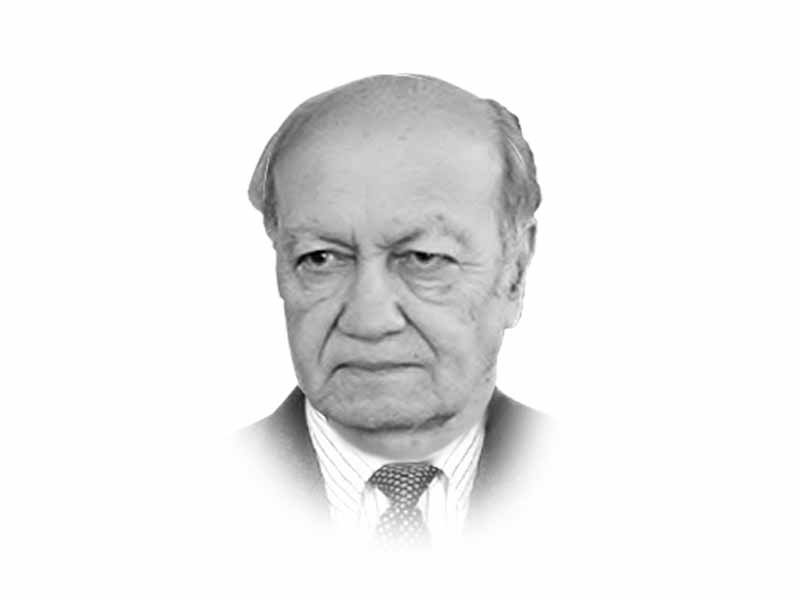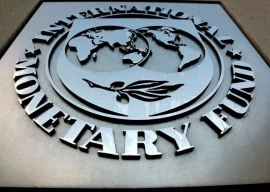
It is understandable that US elections arouse exceptional global interest. For the country is still the sole superpower, has the strongest economy with a nominal GDP of $21.44 trillion and retains its position of being the world’s largest economy since 1871. It maintains the strongest and most advanced military, is the leader in science and technology and is clearly the oldest democracy.
All this is notwithstanding that the global order is undergoing a change and unipolarity is being challenged by emerging powers creating new centres of power. This makes the task of the incoming president even more challenging, as the US also does not have the liberty of abandoning its global responsibilities.
The choice of the US presidential candidates and the fairness and credibility of elections has worldwide impact. It is not surprising that most of the countries are closely watching the election campaign, policy statements and remarks of President Trump and the Democratic nominee Joe Biden.
There are certain specific reasons why this election in particular has acquired significance. During President Trump’s four-year term, the US that was at one time considered to be the champion of democratic values, human rights and fair play has itself drifted away from adhering to these morals. In fact, several domestic and foreign policies reflect this unfortunate slide.
Moreover, President Trump’s policies have been highly divisive and have polarised domestic politics and society as never before. Internationally, democratic values have suffered universally, and monarchies and dictatorships have gained respectability.
President Trump’s disdain for international organisations and treaties has created chaos in the international system. A lack of consistency and predictability in US policies has adversely affected the international system and the influence and credibility of these organisations.
President Trump’s main focus is on the economy and his policies generally are inward looking and not on shared interest. He is committed to enhancing the defense budget. Whereas this keeps the military satisfied and gives a boost to the defense industrial complex which is one of his principal support bases. Of course, this has its downside as it triggers an arms race.
President Trump’s policy of dealing with the coronavirus pandemic has been truly a disaster and it may well prove to be his Achilles heel. Millions of workers have lost their jobs and health facilities overwhelmed by Covid-19 patients. All these factors will play out in the elections assisting Democratic nominee Biden to benefit from it.
Just as President Trump has been aggressive while pursuing his domestic policies, so has he been highly aggressive with China, the main US rival in the strategic and economic fields. This may have gone well with his electorate but has long-term consequences for a stable and cooperative world order.
President Trump has also failed to give the importance to NATO and US relations with the European Union. This has led Germany, France and some other European countries to pursue more independent policies and the drift is clearly visible.
On the contrary, Biden has vast experience of foreign policy both in his capacity as vice president during Obama’s administration and chairman Senate Foreign Relations Committee. His policies are likely to be more predictable bringing stability to the world order.
The question is: what difference would Biden’s presidency have on Pakistan? In essence, there would no fundamental change. There would be a greater emphasis on human rights issues; greater pressure as regards ensuring that remnants of militant organisations do not exist. On Kashmir, the vice president nominee Senator Kamala Harris is expected to keep raising the human rights issues with India.
Otherwise, the Democrats would be as keen to expand and deepen relations with India, as has been the case during Trump’s presidency.
It is expected that Biden would continue with Trump’s policy of withdrawing US forces from Afghanistan and maintaining a presence of about 5,000 troops and a substantive number of intelligence operatives. According to a US secret document leaked recently, it appears that one of the major tasks of the US Afghan contingent would be to keep an eye on Pakistan’s nuclear facilities and on Iran. Surely, Pakistan has always been wary of US designs and takes appropriate measures to ensure the integrity of its nuclear establishments and military systems.
Despite lingering mutual distrust there are areas of common interest on which the two countries would want to cooperate. Pakistan military continues to play a major role in advancing the peace process in Afghanistan. It has been consistently asserting on the Taliban leadership to seriously engage with the Afghan government and show flexibility in its approach so that a peace agreement could be reached. The recent visit of Mullah Baradar to Pakistan bears testimony of its efforts.
For Pakistan, like many other countries, the US is the best destination for higher education. It is an area that again has mutual benefit. Knowledge and expertise that students acquire helps in strengthening the educational and technological base. Qualified students having spent time in the US also become ambassadors of goodwill between the countries. President Trump never gave any importance to this area. In fact, by tightening the visa regime and squeezing university grants Trump has been discouraging admission of foreign students. Biden is likely to reverse this policy and ease restrictions.
The Democratic leadership is expected to play its dominant role within the global system. And revitalise the UN, UNSC and other international organisations that were generally bypassed by the Trump administration. While maintaining diplomatic and political pressure, it is possible that they may revive the nuclear agreement with Iran. During the Obama administration there were efforts to improve relations with Tehran and work towards reducing the influence of the clergy.
Pakistan will face US opposition on CPEC and China’s growing influence in the region. In this, Washington would work closely with India. Pakistan has successfully resisted US pressure in the past and should be able to do so in the future.
Irrespective of who is the president of the US, Pakistan’s relations with it would also largely depend on how the country overcomes its economic dependence and gains national coherence.
Published in The Express Tribune, August 26th, 2020.
Like Business on Facebook, follow @TribuneBiz on Twitter to stay informed and join in the conversation.
COMMENTS (1)
Comments are moderated and generally will be posted if they are on-topic and not abusive.
For more information, please see our Comments FAQ
































1714370039-0/ojwilson-(1)1714370039-0-270x192.webp)


-(1)1714378140-0/AliAminMaryam-(4)-(1)1714378140-0-270x192.webp)
-(1)1714458896-0/ASP-(2)-(1)1714458896-0-270x192.webp)






The question arises that what could the steps India may take with regard to CEPC should Trump wins again. I think it is time for Pakistan and China and Iran too if possible to enter in to a sort of understanding if a pact is not possible to protect their economic rights and peace in the region at all costs.